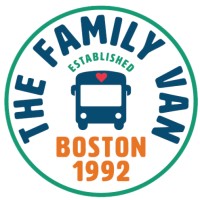
The Family Van
The Family Van, a program of Harvard Medical School, is a mobile clinic committed to building trust, access, and equity. Since 1992, we have improved health care access by partnering with underserved Boston communities. On the van, our team of community health workers provides free health screenings, education, and community referrals. Accompanied by students and volunteers, we foster client-centered, empathetic, compassionate care.






